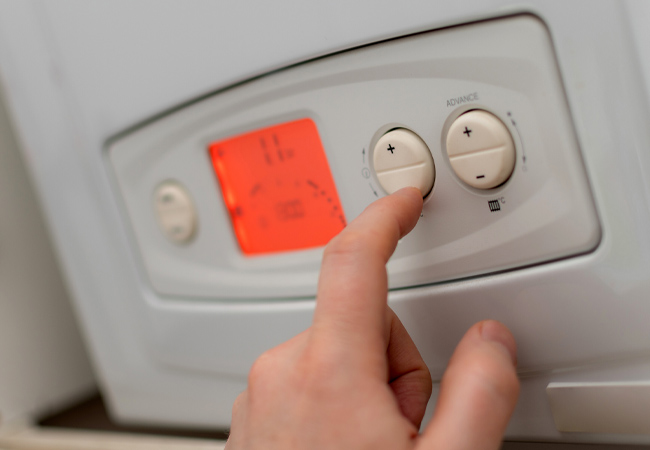
Credit: istock: Thomas Faull
The Scottish government has dropped plans to force homeowners and businesses to replace their heating systems by 2045.
Dr Alasdair Allan, Scotland’s acting Minister for Climate Action, announced in a ministerial statement on 3 April that the Holyrood government intends to bring forward a revised Heat in Buildings Bill (Hibs) later this year.
The Hibs will include a target for decarbonising heating systems north of the border by 2045, which is designed to send a ‘strong signal’ to homeowners and landlords about the need to prepare to decarbonise their buildings.
The bill also contains powers to require public sector buildings to connect to district heating when available, and to set minimum energy efficiency standards for owner-occupier and non-domestic properties, subject to further consideration.
However, the legislation stops short of legally requiring homeowners and businesses to replace their heating systems by 2045, as outlined in the previous version introduced by former Minister for Zero Carbon Buildings Patrick Harvie before his Green Party pulled out of its coalition with the Scottish National Party last year.
Allan said the revised bill responds to ‘legitimate reservations and concerns’ raised since consultation was completed, including the risk of ‘exacerbating fuel poverty and burdening every individual householder with an overly onerous responsibility as we decarbonise’.
‘Instead of placing prohibitions on every homeowner, we will establish targets for government to reach, rather than looking at action through the lens of decarbonising alone.’
However, Robin Parker, sustainable future mission manager at innovation charity Nesta Scotland, said the Hibs appears to be a ‘big missed opportunity to improve Scotland’s energy security’.
‘In the form outlined today, there is a clear risk that the bill will do little to increase uptake of clean heating in Scotland,’ he added.




